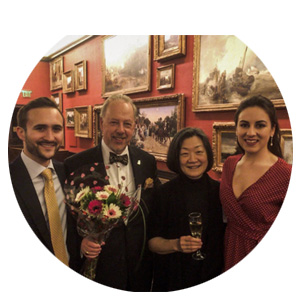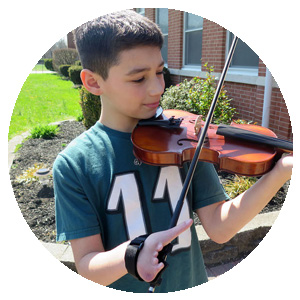
Does cannabis use cause or increase gastrointestinal problems? That may be the case, according to a study presented at Digestive Disease Week by Shelini Sooklal, MD, a Drexel/Hahnemann Gastroenterology fellow. The findings have implications for both recreational marijuana and medical marijuana, calling into question a therapeutic role of cannabis for GI symptoms.
The retrospective case-control study comprised 2,371 patient charts. A total of 772 patients were documented cannabis users; controls were randomly selected from the remaining 1,599 charts, creating a 2:1 test-to-control ratio.
The most frequent symptoms reported by the cannabis group were abdominal pain (25% vs. 8% in the control group), heartburn (15% vs. 9%), and nausea and vomiting (7% vs. 1%). Each of these results was statistically different from the control group (p<.0001). Daily users were more likely to suffer those symptoms than less frequent users. Endoscopy findings showed that users were more likely to be diagnosed with esophagitis, as well as erosive gastritis and non-erosive gastritis.
Also, Sooklal says, "cannabis users were less likely to have a normal manometry study, leading to the suggestion that there's an upper GI tract motility disorder associated with chronic cannabis use, possibly similar to the motility disorder associated with opioid use ... Our results suggest that cannabis use may potentiate or fail to alleviate a variety of GI complaints, which challenges current knowledge."
She points out the need to look further at the results in light of comorbidities, especially concurrent use of opioids, which could contribute to physical findings.
Back to Top

The vibrant Anthony J. Drexel Picture Gallery was an inspired setting for DUCOM Classical's spring concert. The student group's mission is to foster involvement in classical music, both by increasing student exposure to the music and by providing a space where students who play instruments can share their talents with others. The gallery, built in 1902 and restored to its original state, was a new venue for the group, which has performed in several different places over the years, but none like this jewel box.
DUCOM Classical has a strong lineage, engaging even fourth-year students; music is simply part of their lives. Happily, an anonymous donor has volunteered to match all gifts in support of DUCOM Classical, up to a total of $25,000. (If this appeals to you, please contact Andrea Pesce at adp77@drexel.edu.)
Photo: Brian Lefchak, pianist; Dean Daniel V. Schidlow, MD, baritone; faculty adviser Kim Kahng, MD, pianist; and Amanda Curry, mezzosoprano. Lefchak and Curry graduated in 2018.
Back to Top

The most recent report issued by the National Academy of Inventors and the Intellectual Property Owners Association puts Drexel University at number 54 of the top 100 worldwide universities granted U.S. utility patents in 2017. Drexel advanced by 18 places year-over-year.
The rankings are calculated using the number of utility patents granted by the U.S. Patent and Trademark Office that list a university as the first assignee. Drexel received 45 in 2017.
The issued patents cover the range of research areas that Drexel investigators explore every day; just for example:
- New compounds to treat Parkinson's disease, designed by Sandhya Kortagere, PhD, an associate professor in the College of Medicine's Department of Microbiology & Immunology, and being developed by the Drexel start-up company PolyCore.
- A noninvasive tumor detector developed by faculty in the School of Biomedical Engineering, Science & Health Systems and the College of Engineering, brought to market by UE Lifesciences.
- On another note, a multi-touch piano keyboard developed by a professor in the College of Engineering, also on the market.
Patent pending: The baking process, developed by Alexandra Zeitz, manager of the Drexel Food Lab, that turns out a consistently flaky, gluten-free croissant.
Back to Top

This story begins with a fourth-grader who plays the violin. Which is an accomplishment for any young boy but all the more so for Julian Caraballo, who was born with only limited use of his right hand. He could play, but he couldn't reach his full potential without some assistance.
Looking on the internet for help, Julian's music teacher discovered e-NABLE Community Foundation, a network of volunteers who use 3D printing to create prosthetics. As it happens, three graduate students at the College of Medicine also discovered e-NABLE, while searching for a service project for their course in Community Dimensions of Medicine.
e-NABLE made the connection, and everyone got to work. The Drexel trio — Alex Hahn, Kimanthi Gicovi and Tyler Bogaczyk — were delighted to have Julian as their client. The e-NABLE community creates a lot of prosthetic hands, according to Hahn, so there are vast numbers of existing patterns. "We were lucky to get Julian, who really challenged us, and we were able to do something on our own instead of just following a template," Hahn says.
The goal was to design a comfortable lightweight device to securely hold the violin bow in place while permitting Julian to perform essential bowing techniques. The first iteration was bulky and limited wrist flexion, but after some fine-tuning, the second prototype struck just the right chord.
The device consists of a 3D-printed plastic pad, which attaches to the bow. Julian grips the pad and wraps a Velcro strap around everything to hold it in place. The pad can be adjusted on the fly to allow for easier transitions.
Proof of concept: Julian's performance at the school concert, eagerly attended by his Drexel friends, was a resounding success. "Julian loves them," says his mom, Dana Sarubin. "They did a great thing for him."
Back to Top